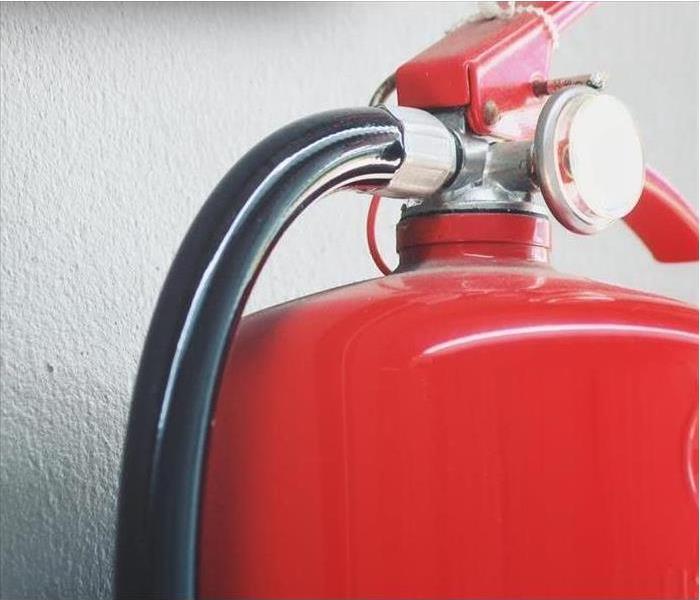3 Fire Extinguisher Tips for Business Owners
8/2/2021 (Permalink)
Fire Extinguisher at Your Commercial Property
Keeping a fire extinguisher at your commercial property in Farragut, TN, is a wise choice. In an emergency, effective use of the device reduces potential fire damage and protects staff. Consider the following three tips:
1. Purchase the Right Extinguisher
Do your homework before going shopping. Look into local fire code ordinances to determine how many devices you need for your property based on the square footage. There are also different classes of extinguishers depending on possible hazards at your place of business.
- Class A – Paper, cloth, wood
- Class B – Flammable liquids such as gasoline
- Class C – Electrical fires
- Class D – Metals including lithium, titanium and magnesium
- Class K – Cooking oils or grease in a kitchen fire
2. Train Staff on Correct Usage Techniques
It is not enough to have a fire extinguisher present, employees must be trained on proper usage. Extinguishers are most effective on small fires in the early stages. For portable extinguishers, the PASS method is an easy way to teach and learn.
- Pull – Remove the pin
- Aim – Point the nozzle at the bottom of the flames
- Squeeze – Maintain pressure on the handle to activate the device
- Sweep – Move the device from side to side towards the fire
3. Plan for Fire Emergencies
Extinguishers are part of a more comprehensive safety plan. In the case of a fire emergency, there are other considerations for both staff safety and minimizing fire damage.
- Evacuation – Practice procedures, exit routes and roles
- Supplies – In addition to extinguishers, have disaster supply kits on hand
- Hazards – Map potential onsite hazards, such as combustibles
- Insurance – Obtain coverage through a commercial insurance company
- Recovery – Have contact information readily available for a fire restoration company
A fire extinguisher is a smart way to protect your staff and property in Farragut, TN, in the event of a fire emergency. Prepare ahead of time by purchasing the appropriate device, training staff and knowing what to do during and in the aftermath of a fire.






 24/7 Emergency Service
24/7 Emergency Service
